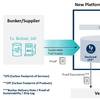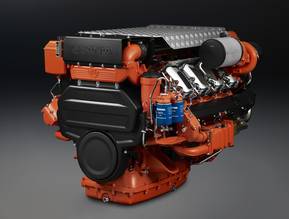The Baltic Exchange's main sea freight index, tracking rates for ships carrying industrial commodities, extended its record low on Wednesday as concerns over the Chinese economy continued to affect vessel demand.
The overall index, which gauges the cost of shipping dry bulk cargoes including iron ore, cement, grain, coal and fertiliser, was down a point, or 0.21 percent, at 467 points, the lowest in records that date back to January 1985.
On Tuesday the index had touched a low of 468 points.
World stocks fell for a fifth day on Wednesday as China fueled fears about its economy by allowing the yuan to weaken further and a nuclear test by North Korea added to a growing list of geopolitical worries.
The dry bulk shipping downturn began in 2008 after the onset of the financial crisis and has worsened significantly in recent months as demand for iron ore and coal has declined in the face of slower economic growth in China.
Chinese iron ore futures dropped on Wednesday, with demand in the world's top consumer expected to weaken amid deepening output cuts by steel mills.
The panamax index fell 2 points, or 0.43 percent, to 464 points.
Average daily earnings for panamaxes, which usually carry coal or grain cargoes of about 60,000 to 70,000 tonnes, decreased $17 to $3,705.
The capesize index was up 5 points at 467 points as average daily earnings rose $84 to $4,760. Capesizes typically transport 150,000-tonne cargoes such as iron ore and coal.
Among smaller vessels, the supramax index and the and the handysize index each shed 3 points to stand at 442 points and 263 points respectively.
(Reporting by Vijaykumar Vedala in Bengaluru)













